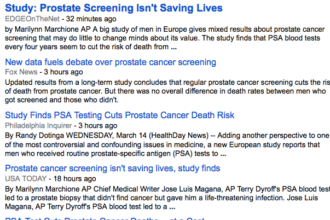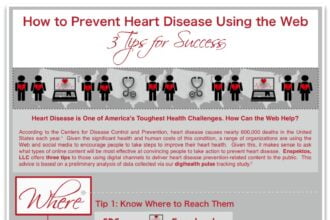The long process of health care reform will begin the day after the U.S. Supreme Court rules in the case of NFIB v Sebelius. No matter how the Court rules, we will still face the big problems that predated The Patient Protection and Affordable Care Act (PPACA) – high and rising costs, gaps in coverage, uneven quality and heavy red-tape burdens for individuals, providers and businesses.
The long process of health care reform will begin the day after the U.S. Supreme Court rules in the case of NFIB v Sebelius. No matter how the Court rules, we will still face the big problems that predated The Patient Protection and Affordable Care Act (PPACA) – high and rising costs, gaps in coverage, uneven quality and heavy red-tape burdens for individuals, providers and businesses. The Court may throw out all of PPACA, part of it, or none of it; but no matter which, health care spending will remain the single greatest fiscal threat to the federal government, state governments, businesses and individuals. Congress and the 50 state legislatures will have little choice but to revisit the topic.
What will be the elements of post-Supreme Court reform debates? In the text below, I’ll outline two areas: small business issues and entitlement issues.
Small business health care solutions
Small business is the logical starting point for health care reform. In the lead-up to PPACA’s passage in 2010, it was often said by parties on all sides of the debate that reform had to address the health care problems faced by small business. With no human resources departments, small businesses have great difficulty dealing with the administrative side of health care. The laws governing small-group insurance create special obstacles to purchasing coverage for employees. But most importantly, insurance costs are at their worst – high and volatile – in the small business sector.
In 2008, NFIB said, “When it’s fixed for small business, it’s fixed for America.” Unfortunately, PPACA did not fix the problems for either small business or for America. Since the challenges have not lessened for small business, it’s time, once again, to address the issues.
If the Court upholds all or part of PPACA: It’s essential to deal with some of the law’s provisions that are especially troubling to small business. Congress could start by repealing the health insurance tax and the employer mandate. Following those, there are some harmful taxes that discourage employers from hiring: the so-called Medicare wage and investment taxes, the medical device tax, the drug tax and so forth. (NFIB led the successful effort to repeal the infamous 1099 provision.) Of course, if the Court strikes down PPACA in its entirety, these questions will be moot.
Regardless of how the Court rules: NFIB has proposed a set of twelve health care solutions that would benefit small businesses. These include: (1) Equal tax treatment in the employer-sponsored and individual markets; (2) Tax parity between the self-employed and other small businesses; (3) Changes in tax and insurance laws so employers may offer insurance on a defined-contribution basis; (4) Information technology to make insurance prices and quality transparent; (5) Insurance exchanges to expedite insurance purchases by both employers and individuals; (6) Interstate health insurance markets for small business; (7) Options for developing larger insurance pools; (8) Access to insurance for those with pre-existing conditions; (9) Insurance portability for those whose residence or jobsituation changes; (10) Broader range of consumer-driven health insurance products (e.g., improvements in HSAs, FSAs); (11) Wellness and preventive options; (12) Medical malpractice reform. NFIB’s website provides more information on this starter set of health care solutions.
On #3 (defined contribution), I’ll note that while opposing PPACA in late 2009, NFIB avidly supported a bipartisan amendment, introduced by Sen. Ron Wyden (D-OR) and Sen. Susan Collins (R-Maine) that would have enabled small businesses to offer health insurance on a defined-contribution basis. Unfortunately, the amendment was defeated. The basic framework of Wyden-Collins is a good starting point for new discussions, as is the Utah health insurance exchange, which includes a defined- contribution capability.
Solutions #8 (concerning pre-existing conditions) and #9 (concerning portability) are perhaps the most daunting challenges on the list. The individual mandate, the subject of NFIB’s constitutional challenge, was meant to address these problems. The mandate, however, is not essential for these goals. By 2009, ways to achieve these goals without a mandate were already under discussion. Ed Haislmaier, a conservative scholar at the Heritage Foundation and Paul Starr, a liberal scholar at Princeton University suggested strikingly similar mandate-free proposals that would almost certainly have passed constitutional muster, for example.
Entitlements
NFIB focuses on issues that are of direct concern to small business. However, the “NFIB Healthcare Solutions” document acknowledges “meaningful reform” must also deal with entitlements.
Entitlement reforms: The most difficult long-term financial problem facing the federal government is how to make Medicare efficient and financially sustainable. For states, the biggest problems are Medicaid and CHIP (the Children’s Health Insurance Program).
Medicare’s reimbursement system is nearly 50 years old and fails to reflect underlying economic realities. There is a chain of arguments that goes something like this: (1) Medicare’s reimbursement formulae overcompensate specialists and undercompensate primary care doctors; (2) thus, we have an overabundance of specialists and a shortage of primary care physicians; (3) Because Medicare is so big, the overcompensation and overabundance of specialists spills over into the private health insurance markets for people under 65 years of age; (4) The end result is to skew health care toward treating disease rather than toward preventing it.
Medicaid is a heavy financial burden on the states, as well as on the federal government. And, as with Medicare, part of the problem involves nearly-50-year-old financing formulae. In particular, the structure of Medicaid financing arguably rewards states that are profligate and punishes states that are prudent.
How should we change entitlements? That’s the $60-trillion-dollar question. And we’ll need answers in order to keep the federal government solvent and in order to deliver better care less expensively and more efficiently.
We can start the conversation on entitlements the day after the Supreme Court rules on NFIB v Sebelius. And Congress can begin pursuing those small business health care solutions that same day.
—–
Reprinted with permission by Altarum Health Policy Forum (www.healthpolicyforum.org), 6/19/12.






